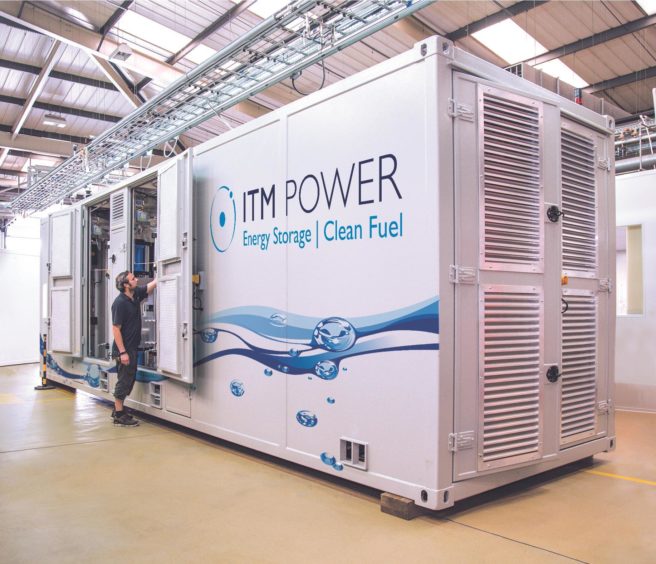
Amid the debate around hydrogen and what niche it may fill, there is an increasing focus on the resource as a storage medium.
The ability to take excess power and convert that into something that can be stored is an attractive one, ITM Power CEO Graham Cooley told attendees at the third session of Energy Voice’s Hydrogen – a Tracking Transition series.
The contracts for difference (CfDs) for offshore wind “in this next round have eliminated the negative price protection for the renewable energy companies that are bidding”, Cooley said. “They now need a solution for negatively priced electrons. That solution is positively priced molecules.”
Given this shift, where renewable energy companies will need to bank on storage capacity, they are “all looking at deploying their own electrolysis equipment”, he said.
There is still uncertainty in the UK, and around the world, over quite how the energy transition will come. Domestically, this question often boils down to an opposition of electricity vs hydrogen, or even more domestically of heat pumps vs hydrogen boilers.
The UK government has given some signs of support for the heat pump industry. In October, it offered subsidies of £5,000 to households to move to a heat pump, funding 90,000 installations over three years.
Participants at the event were eager to fly the flag for hydrogen as an alternative to electrification. Cooley noted the practical advantages of the UK’s existing gas network.
“It’s not one or the other,” the Decarbonised Gas Alliance head Chris Barron said. “In some situations heat pumps will be the answer, in other areas hydrogen will be the answer.
“It’s really important we retain the consumer choice element in this. The future is going to be discussions in the pub on a Friday night, around one house finds a heat pump against another’s hydrogen boiler.”
Fasken partner Emilie Bundock, speaking from Montreal, said that enthusiasm from governments was a positive. “The enthusiasm from industry clusters led us to create a multi-disciplinary team within our firm to assist clients who want to invest or get involved in the hydrogen sector.”
The sector has reached a point, though, where it needs more “concrete actions”, she said. “The legal framework, how do you get projects on the road, those are needed. A little less about the colours of hydrogen would get that under way.”
You can find out more about the Tracking Transition series here. You can watch the past three episodes and sign up for the last of the series, which will take place on February 24, 2022.
